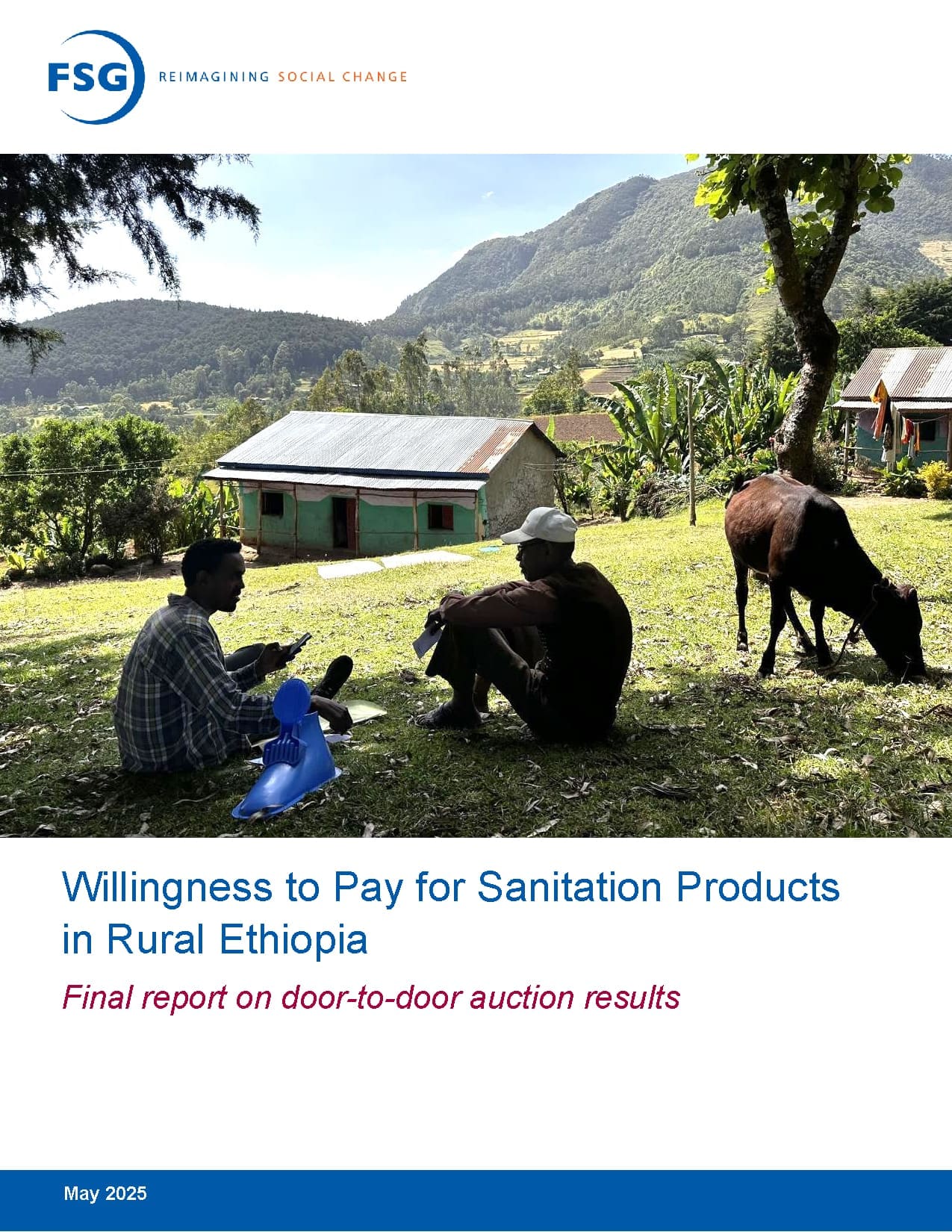A new FSG study, Willingness to Pay for Sanitation Products in Rural Ethiopia (May 2025), provides key insights into what rural Ethiopian households are willing to pay for improved sanitation—and what shapes that willingness. The study targeted households without access to improved sanitation (84% of rural Ethiopian households) and found that most rural households in Ethiopia are not willing to pay the full market price for improved toilets—with fewer than a quarter willing to pay for an upgrade and only 11% for a new toilet outside Somali and Afar. The study points to significant regional differences in preferences, perceptions, and market conditions between Somali + Afar and the rest of Ethiopia (referred to as Ethiopia*).
Top Takeaways
- Most rural households in Ethiopia* are unwilling to pay more than 40–50% of the market price for improved sanitation products, with median willingness to pay (WTP) falling well below current market prices.
- WTP increases with wealth in Ethiopia*, but even the top 20% of households by wealth are largely unwilling to pay the full market price for either upgrades or new toilets.
- Households that perceive the market price to be higher are more likely to express a higher WTP in Ethiopia*, especially among more affluent groups—suggesting a role for targeted marketing and price transparency.
- Many households with unimproved toilets in Ethiopia* desire new toilets, but they may opt for lower-cost upgrades when informed about their benefits—creating an opportunity to shift preferences through better sales and messaging strategies.
- More than half of rural households in Somali + Afar are willing to pay the market price for a new toilet, despite most being in the bottom 40% of households.
FSG estimates that under current market conditions and national subsidy policy, all target households in Somali + Afar and 23–25% of target households in Ethiopia* can gain access to improved sanitation—leaving a sizeable share of rural households unserved.
To expand coverage further, donors and implementers can introduce market-based sanitation (MBS) interventions such as increasing price awareness, promoting affordable upgrade options, and reducing product prices through design and delivery innovations. The Government of Ethiopia can support these efforts by strengthening supply chains and revisiting subsidy eligibility criteria to better reach vulnerable households.
The study was supported partially by the American people through contributions to USAID’s Water, Sanitation, and Hygiene Partnerships and Learning for Sustainability (WASHPaLS) #2 activity, and conducted in partnership with the USAID/Ethiopia Transform WASH program (T/WASH).



